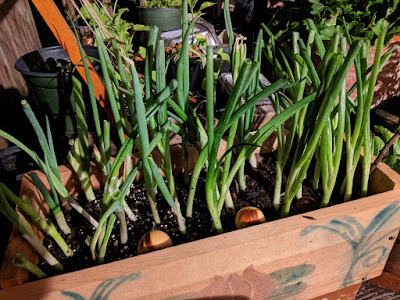Upcycled Scrapwood into Painted Planter
When life gives you scrap wood, make scrap wood planters! That has been my motto lately, and it has been fun to see what can be created out of a few leftovers by making as few cuts as possible. The picture below is the bottom of the assembled planter while I was completing the last construction step -- drilling drainage holes into it. It's definitely made of leftover pieces, you can see someone else's pencil marks.
For this scrap wood planter I decided to try painting the outside with some really cheap poster paint. The paint CLEARLY SAYS it is water-soluble, so I did not expect my paintings on the wood to last very long past the next rainstorm. But I was also curious about how much paint would sink into the wood and how long it might persist while living outside in the elements.
Here is the assembled planter before any painting.
I looked for some Art Deco inspiration, in the very loosest sense, and found a butterfly and a lotus - both of which seem like appropriate themes for garden art. I have near-zero decorative painting skills, but this seemed like a good place to play around and try something new.
Painted Planter Results
I had 6 colors of the poster paint but didn't try to use them all, in this case simple was the goal.
Below is the first side, painting inspired by an Art Deco jewelry piece I saw online.
Below is the side that I painted with a lotus-inspired design. Van Gogh I am not, nor Monet.
Conclusion
Lucky for this scrap wood planter painting experiment there was a rain event the very same night that I painted this planter and planted it with some scallions. (Yes, those are scallions purchased from the grocery store for 99 cents per bunch that I replanted in the garden.) The photos below shows how much washed away in that first rain event, just hours after the paint had dried.
Since the paint fades so quickly I wonder if this could be a technique to use if someone wanted to quickly create a 'weathered' look along new wood (it would be someone who had poster paint, but not other traditional aging washes like nails soaked in vinegar). You could maybe use a mix of white, gray, brown, and black paint applications to mimic varied textures, let it sink into the wood and dry, and then wash the wood. I have no idea if that would look reasonable or like a decrepit art project from some long-ago children's art attempt.
This was a fun project, and all for the cost of a few screws and some $2 bottles of poster paint.
Happy freestyle-garden-ing!




